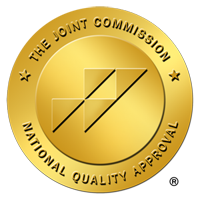What is codependency in addiction? Codependency is something often talked about in relationships, but it has a strong role in addiction and is something that can easily enable one partner or spouse who is currently struggling with addiction.
What is Codependency in Addiction?
Codependency in addiction is when one partner in a relationship has severe emotional or physical needs that the second partner dedicates their time to providing. This is typically to the detriment of the needs, relationships, or personal activities of the second partner.
Why is Codependency in Addiction Harmful?
Codependency in any relationship can be harmful because it takes away from the second partner’s ability to live a healthy, fulfilling life for themselves, but more importantly, it enables the first partner to continue with destructive, harmful behaviors like addictions.
Let’s look at an example:
Jonathan and Rachel have been together for a few years. Rachel only feels good about herself when other people talk about how great a partner she is to Jonathan and how well she takes care of her household.
Rachel is continually focused on doing whatever it is Jonathan needs as she is defined by her relationship with Jonathon. She, for example, spends all of her free time in the afternoons cleaning the house, putting Jonathan’s clothes away after washing them, making him snacks, preparing dinner, and running errands for him.
Whenever Jonathan does these tasks for himself, Rachel becomes very insecure.
Rachel can’t seem to say no to anyone but especially to Jonathon. On the rare occasion that he has asked her to do something that she is unable to do because of a prior commitment, she feels overwhelmingly guilty and will cancel whatever plans she had with her other friends and even let her work go unfinished so that she can help Jonathan.
Signs of Codependency
As the second partner, the person who is codependent, you might unintentionally enable the first partner’s ability to continue using drugs and alcohol as you take care of them, become obsessed with your relationship, and work to please them.
There are some common signs and symptoms of codependency from the perspective of the second partner who dedicates their time to providing physical or emotional needs to the first partner instead of their needs:
- People Pleasing: You might be struggling with codependency if the opinions of other people are the most important things for you and if you spend all of your time doing whatever it takes to ensure other people have a positive opinion of you. This can include experiencing an inability to say no to people or intense guilt if you cannot help people.
- Low Self-Esteem: You might be struggling with codependency if you don’t feel personal love or self-worth outside of your role in a relationship.
- Taking Care of Others: You might be struggling with codependency if your primary need is to care for others, particularly someone with whom you have a close relationship. You typically don’t feel comfortable or secure unless that person needs you.
- No Boundaries: You might be struggling with codependency if you don’t have any boundaries. You might actually control other people or try to manipulate them so that you can feel secure in your relationship with them. You might offer unwanted advice at all times for how other people should live or feel responsible for how they feel.
Someone who struggles with codependency is defined by their relationships, and so they tend to obsessively focus on them even if those relationships aren’t healthy and don’t have any real intimacy.
Codependency doesn’t always occur with addiction, but it is more common in addiction.
Using the example above, if Jonathan starts to become addicted to alcohol, Rachel might feel better about herself because she is able to clean up after him, get rid of all his empty bottles every morning, wash the vomit out of his clothes, or cover up for him to other people.
This takes away any of the negative consequences that Jonathan might otherwise have faced as a result of his actions.
The result?
Rachel unintentionally allows Jonathan to continue with his bad behavior because he doesn’t feel all of the impacts of the destruction it causes.

Getting Help for Codependency and Addiction
If you are struggling with any of the symptoms of codependency or you are the first spouse and you see your second spouse behaving in such a way, it’s important that you reach out for professional addiction treatment.
At American Detox, our inpatient rehab gives you an opportunity to completely extricate yourself from that codependent relationship. When you reside at our treatment center full-time, the codependency that might have enabled harmful behavior won’t be there, so you’ll have time to focus exclusively on yourself and your recovery.
Call us today to get help with your addiction.


